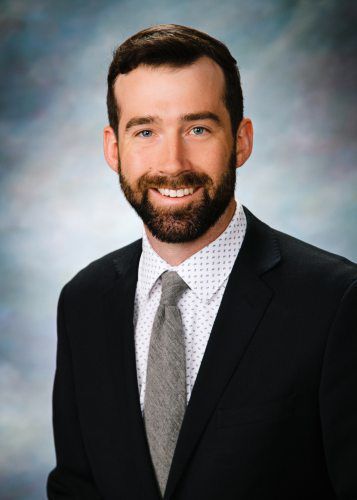To learn more about the Community Foundation’s brain health work or get involved, contact Peter Supple at 563.588.2700 or peter@dbqfoundation.org.
Adapting quickly is a skill many of us acquired in 2020.
Like many employers in Dubuque, Cottingham & Butler quickly pivoted to a remote work environment when the pandemic began last year. As vaccines increase and the pandemic wanes, the company is welcoming employees back to the office — and doing so with awareness that workers need continued support to manage ongoing stresses and anxieties.
Cottingham & Butler leaders recognized that for employees to work their best, they must feel their best. They need to tend to their mental health, which today we refer to as brain health.
In response, flexible in-office and at-home scheduling is available to employees, training is underway for staff to recognize the signs of COVID-19 related stress, telehealth visits are strongly encouraged and resources are available when employees have questions about COVID issues.
Cottingham & Butler is not alone. The “new normal” of how and where people work put into sharp focus the need for employers across Dubuque to support the brain health of their workers. Returning to a pre-pandemic way of life will be a journey, and it’s essential to build on lessons learned during the past 16 months.
By supporting self-care and ensuring easy access to services, employers can empower their workers and ensure they remain satisfied in their jobs.
We at the Community Foundation of Greater Dubuque understand this through our brain health working group. Each month, we convene business leaders, service providers, civic officials and nonprofit professionals to discuss issues around brain health and explore ways of ensuring all people can tend to their well-being.
This work stems from our 2016 community needs assessment, which found that access to brain health services is one of the biggest barriers to living thriving lives for Dubuque residents.
A theme has emerged at recent meetings: Coming out of the pandemic, our community faces new and lingering challenges. Many employees are eager to return to the workplace, yet they are dealing with stressors that impact their jobs.
These factors include the ongoing health risk the coronavirus poses to them and their loved ones and financial struggles that might force them to make difficult choices around work, child care and utility bills. Focusing on work becomes hard in the face of such challenges.
There is good news: Business leaders in our group are finding success by acknowledging and responding to these needs. Like Cottingham & Butler, some are offering flexible scheduling. Employees are being offered some leeway to work remotely or at different times of the day, freeing up time — and mental capacity — to deal with competing priorities at home and work.
In many cases, actions that help people manage day-to-day stress can go a long way toward increasing their ability to cope with changes. Offering this kind of support also has a positive influence on people’s ongoing well-being long after the pandemic fades.
Keep in mind some people might need additional support. Highlight resources with your employees so they know who to turn to for professional help, such as counseling, substance use services or diagnostic evaluations.
Sometimes, getting help is as simple as knowing which providers are in an insurance network. Organizations’ human resources departments can be valuable sources for this information.
Most importantly, though, is creating a culture where people feel comfortable discussing brain health issues and seeking help. Trainings for staff on how to recognize signs of anxiety or stress, like those that Cottingham & Butler are conducting, can be key to reducing the longstanding stigma around brain health and ensuring that employees seek the care they need.
Adjusting to a “new normal” in 2020 took a toll on many people’s brain health. Post-pandemic life might look and feel a little different, but for many knowing resources and support are out there can be a game changer.
Historically we have done a good job taking care of our bodies, now it’s time to give our brains the same attention. Let’s work toward a future where all people can access the services without the stigma.


